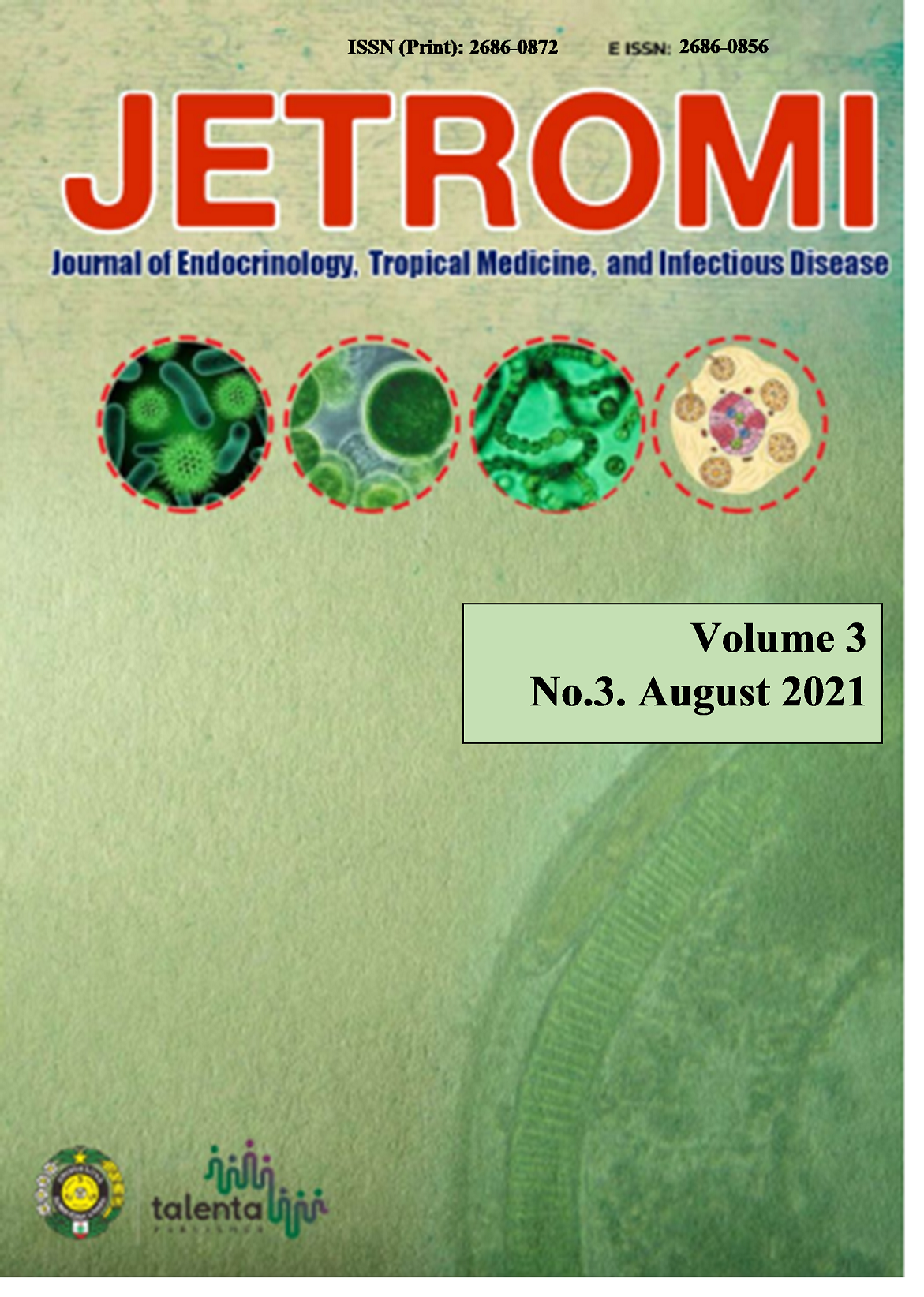Differences of Lower Urinary Tract Symptoms Degree In Benign Prostatic Hyperplasia Patients With and Without Diabetes Mellitus
DOI:
https://doi.org/10.32734/jetromi.v3i3.6415Keywords:
BPH, DM, IPSS, LUTS DegreeAbstract
Background. Benign Prostatic Hyperplasia (BPH) is a benign tumor that most often occurs in men. Many risk factors could cause BPH, one of which is diabetes mellitus (DM). Diabetes mellitus (DM) is a metabolic disease, characterized by hyperglycemia.
Method. This study was conducted at the Urology Polyclinic of the Universitas Sumatera Utara Hospital from August to September 2019. A total of 102 patients diagnosed with BPH were registered by cross-sectional study approach. Detailed medical history and physical examination were performed for all patients to diagnose BPH. While the diagnosis of DM was according to patient history or diabetic-medicine use. International Prostate Symptom Score (IPSS) were completed by all patients to obtain a LUTS degree.
Result. From a total of 102 patients diagnosed with BPH there were 97 patients were selected. The mean age of patients was 70.43 ± 7.52 year (range 50-88 year) and the total IPSS score was 17.55 ± 6.55. DM patients were more likely to report severe LUTS and the symptom score evaluated with IPSS was signiï¬cantly higher than in non non-DM group: 21.69 ± 5.41 vs 16.70 ± 6.41 (p=0.005). For the IPSS subscores, the DM group also show higher storage: 8.38 ± 4.57 vs 5.88 ± 3.72 (p = 0.02), voiding: 9.69 ± 2.47 vs 8.14 ± 3.21, (p= 0.039) and post micturition: 3.63 ± 1.26 vs 2.69 ± 1.744, (p= 0.045) symptoms significantly.
Conclusion: Benign Prostatic Hyperplasia patients with DM manifested more severe lower urinary tract symptoms. Storage, voiding, post micturition, and urgency symptoms were also greater.
Downloads
Downloads
Published
Issue
Section
License
Copyright (c) 2021 Journal of Endocrinology, Tropical Medicine, and Infectious Disease (JETROMI)

This work is licensed under a Creative Commons Attribution-NonCommercial-ShareAlike 4.0 International License.
The Authors submitting a manuscript do so on the understanding that if accepted for publication, copyright of the article shall be assigned to Journal of Endocrinology, Tropical Medicine and Infectious Diseases (JETROMI).
Copyright encompasses exclusive rights to reproduce and deliver the article in all form and media. The reproduction of any part of this journal, its storage in databases and its transmission by any form or media, will be allowed only with a written permission from Journal of Endocrinology, Tropical Medicine and Infectious Diseases (JETROMI).








